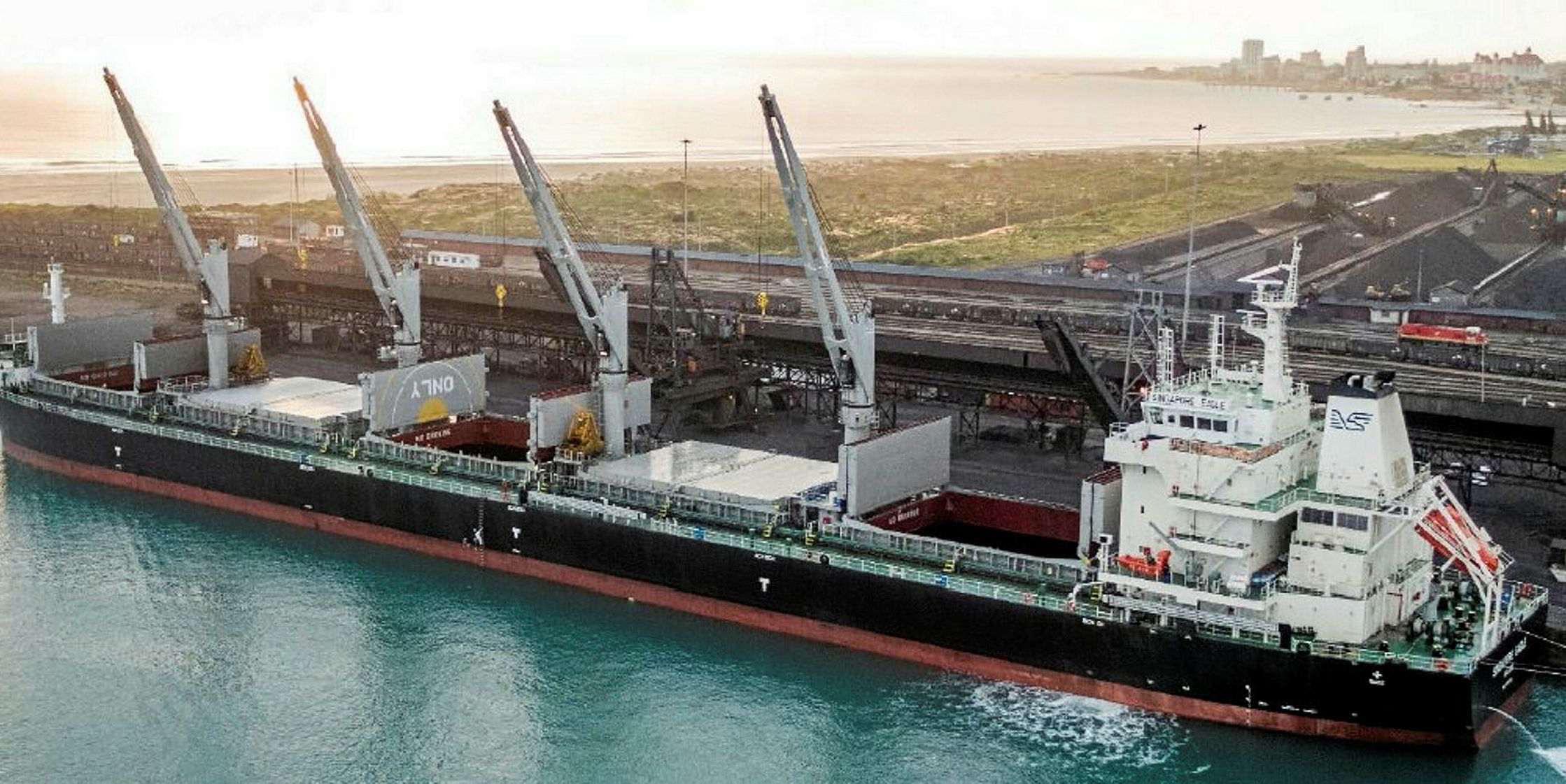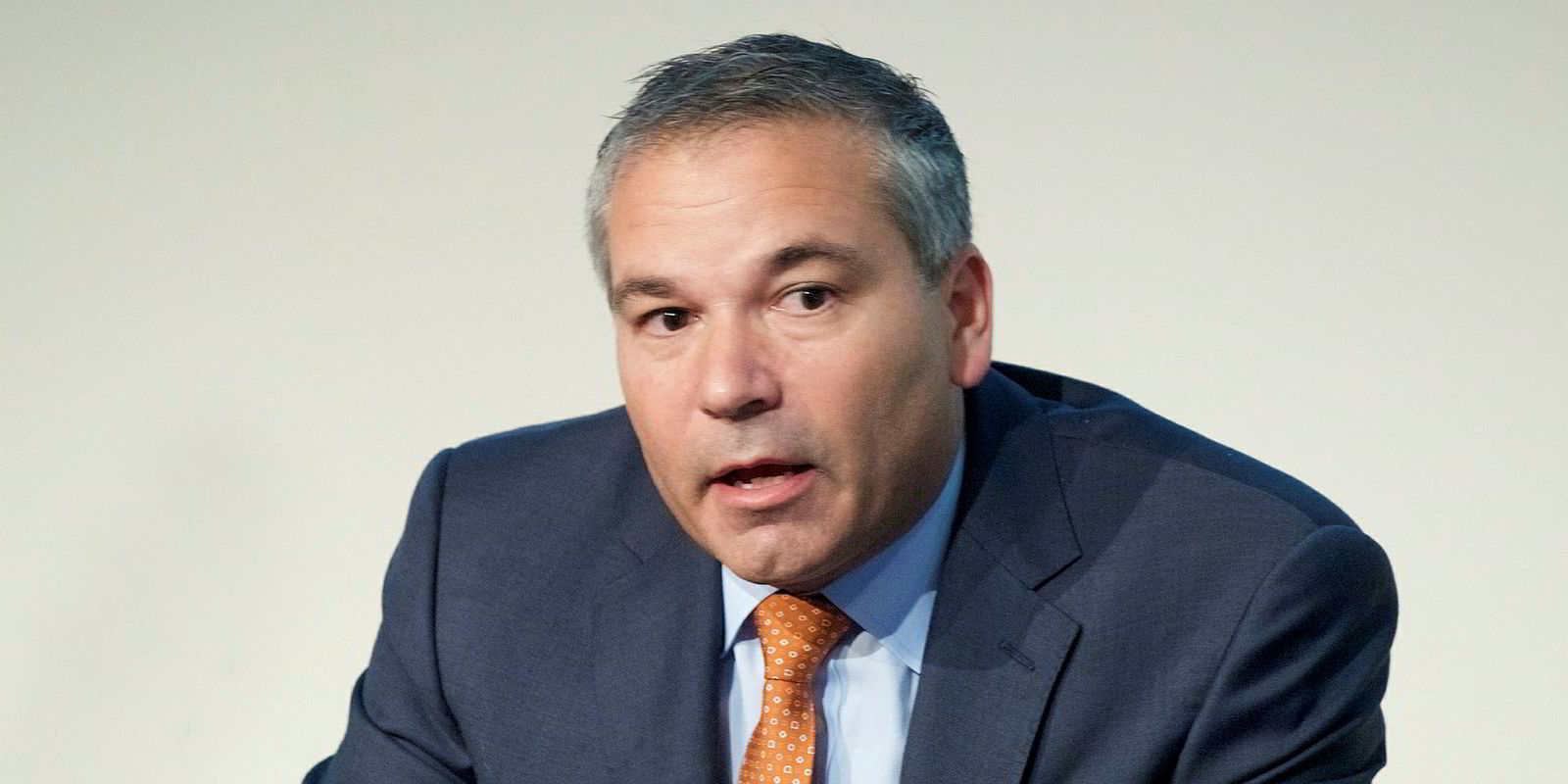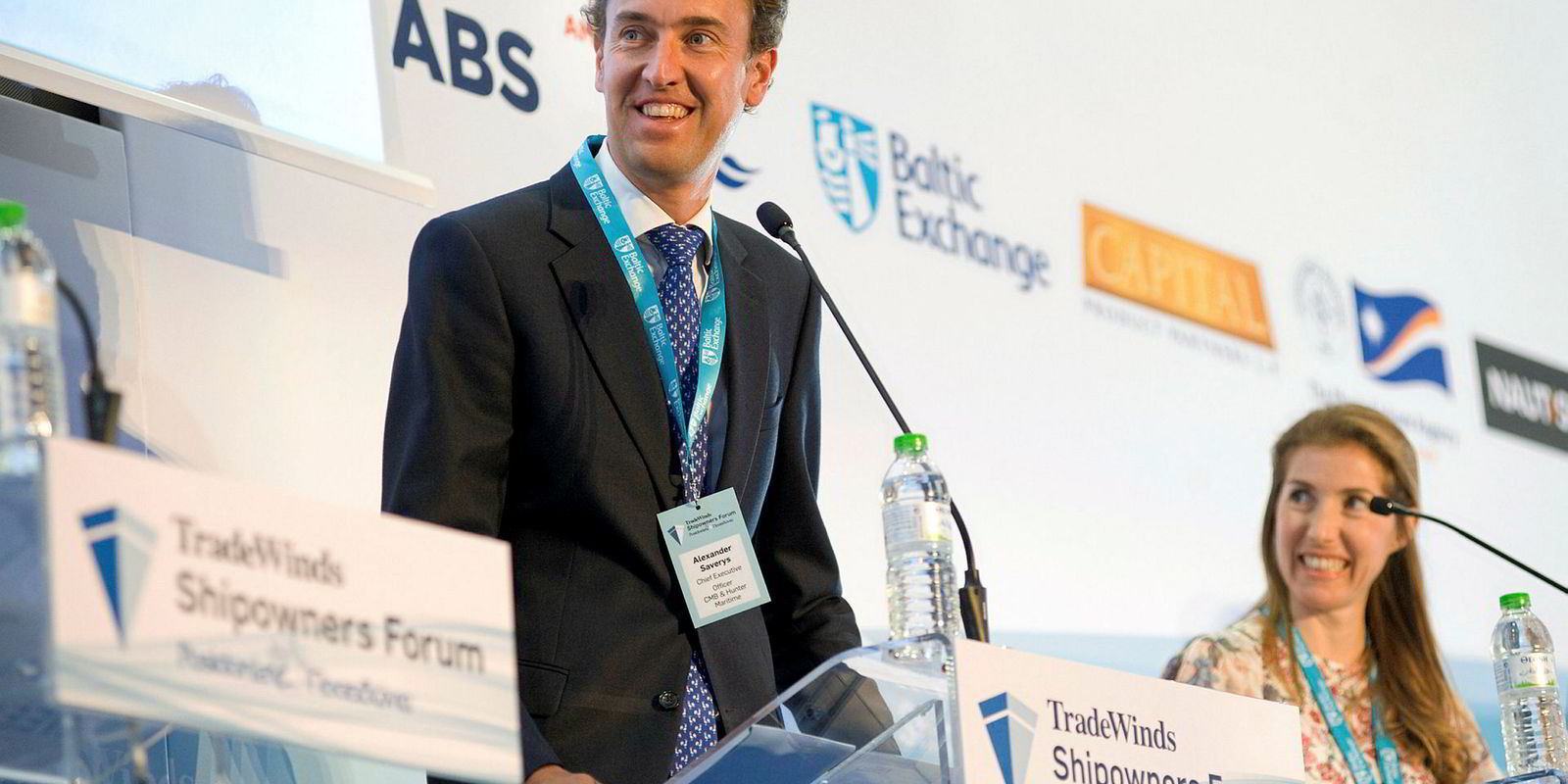Eagle Bulk Shipping is leaving the door open for further fleet growth and renewal despite launching a near $40m scrubber retrofitting project.
Nasdaq-listed Eagle announced after the close of US markets on Tuesday it would fit 19 of its ships with scrubbers, with individual options in place for 18 more.
“We look at the investment in ships and the investment in scrubbers as a business case and we feel this is compelling and the best use of capital at this time,” chief executive Gary Vogel said on a conference call today.
“Having said that, we are not closing the door on opportunities in terms of fleet renewal.”
Eagle has bought 13 secondhand ships and divested to 10 older vessels as part of a major overhaul of its fleet under its present management team.
Vogel said while the company will continue to look at investing in tonnage, the new project requires significant capital and financing has yet to be finalised.
Eagle will spend around $2m per scrubber and is presently evaluating financing options.
The shipowner has close to $100m in liquidity, giving it sufficient cash reserves to fund the equipment.
However, Vogel says it is likely to use a mixture of debt and equity and there is the potential for export credit agency financing.
Sister act
Magnus Fyhr, an analyst at Seaport Global, says Eagle has made a “bold move” and suggests the payback could be around two years.
In a presentation today, Eagle said in a $12,000-per-day rate environment and a fuel price spread of $200 per tonne, it would recoup its capital in 2.1 years.
At higher spreads of $300 per tonne this reduces to 1.4 years and at $400 payback is only 1.1 years.
Vogel suggested that when the legislation kicks in, an ultramax vessel fitted with a scrubber could have a fuel bill of $5,000 to $10,000 per day less than a sister ship without the equipment.
Operational advantages
Eagle believes the new rules will be positive for dry bulk shipping rates and are coming at a time when dry bulk supply and demand fundamentals are constructive.
However, as an owner operator, the company feels it can ensure virtually 100% of the benefits of the technology are retained.
“As an owner operator we have the ability to dynamically adjust our trading patters to maximise returns based on individual ship characteristics," Vogel said.
“Put another way, scrubber fitted ships have the potential to become the most efficient ships on the water in terms of fuel costs – even 10-year-old retrofitted supramax vessels.
“In such a scenario, we plan to adjust vessels’ employment profiles to ensure these newly-minted super-eco vessels spend their time on longer voyages with the longest percentages of time at sea – maximising returns and shortening payback periods on the scrubbers.”
Eagle has a fleet of 48 bulkers to its name and has not identified the individual ships to be fitted with scrubbers.
"One thing we talked about was the ability to stretch engineering costs across fleets of sister vessels," Vogel hinted. "And ships which are higher consumers tend to give a better return and a quicker payback."







